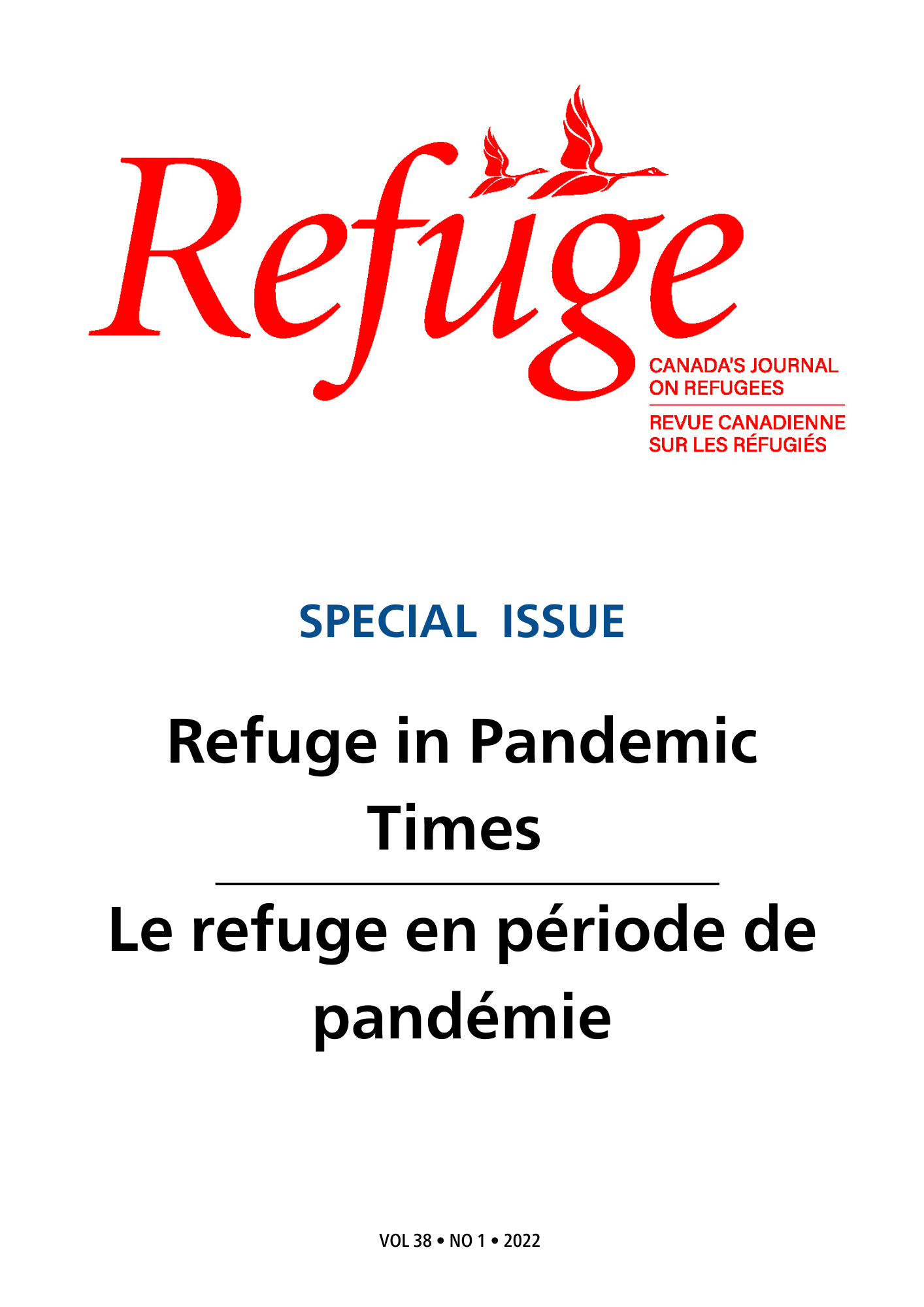From Ethics to Refusal: Protecting Migrant and Refugee Students from the Researcher's Gaze
DOI:
https://doi.org/10.25071/1920-7336.40893Keywords:
humanizing methodology, testimonio, migrant and refugee youth, politics of protection, research ethicsAbstract
This piece makes a methodological contribution to refugee studies in the context of the “ethical turn” in the field by arguing for a spectre orientation to the student voice that resituates participant knowledge as diffused rather than explicit. This orientation, as a methodological stance, goes beyond reflexivity and practices a refusal to engage in damage-centred research. Drawing from a broad theoretical and conceptual literature within the contexts of forced migration, this short essay expands the current literature focusing on procedural ethics by offering a more humanizing methodology for conducting research with migrant and refugee youth during the COVID-19 pandemic.
Metrics
References
Anzaldúa, G. (1987). Borderlands/La frontera: The new Mestiza. Aunt Lute Books.
Anzaldúa, G. & Keating, A. (2015). Light in the dark/Luz en lo oscuro: Rewriting identity, spirituality, reality. Duke University Press.
Behar, R. (1996). The vulnerable observer: Anthropology that breaks your heart. Beacon Press.
Delgado-Bernal, D., Burciaga, R., & Flores Carmona, J. (2012). Chicana/Latina testimonios: Mapping the methodological, pedagogical, and political. Equity & Excellence in Education, 45(3), 363–375. https://doi.org/10.1080/10665684.2012.698149
Dillard, C. B. (2012). Learning to (re)member the things we’ve learned to forget: Endarkened feminisms, spirituality, & the sacred nature of (re)search & teaching. Peter Lang.
Latina Feminist Group. (2001). Telling to live: Latina feminist testimonios. Duke University Press.
Paris, D., & Winn, M. T. (2014). Humanizing research: Decolonizing qualitative inquiry with youth and communities. Sage Publications, Inc.
Simpson, A. (2007). On ethnographic refusal: Indigeneity, “voice” and colonial citizenship. Junctures: The Journal for Thematic Dialogue, 9, 67–80. https://junctures.org/index.php/junctures/article/view/66
Tuck, E. (2009). Suspending damage: A letter to communities. Harvard Educational Review, 79(3), 409–428. https://doi.org/10.17763/haer.79.3.n0016675661t3n15
Tuck, E., & Yang, K. W. (2014). Unbecoming claims: Pedagogies of refusal in qualitative research. Qualitative Inquiry, 20(6), 811-818. https://doi.org/10.1177/1077800414530265
Downloads
Published
How to Cite
Issue
Section
License
Copyright (c) 2022 Vianney A. Gavilanes

This work is licensed under a Creative Commons Attribution-NonCommercial 4.0 International License.
Refuge authors retain the copyright over their work, and license it to the general public under the Creative Commons Attribution-Non Commercial License International (CC BY-NC 4.0). This license allows for non-commercial use, reproduction and adaption of the material in any medium or format, with proper attribution. For general information on Creative Commons licences, visit the Creative Commons site. For the CC BY-NC 4.0 license, review the human readable summary.








